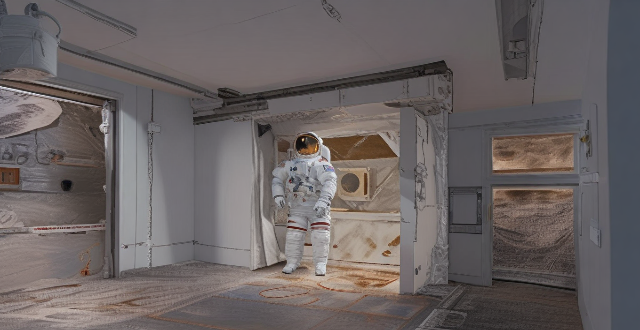Long-duration space missions pose physical, psychologicalLong-duration space missions pose physical, psychological astronauts, including including muscle atrophy, bone loss, radiation exposure, immune system changes, isolation, communication delays, sleep disturbances, resource management, equipment maintenance, and task scheduling. Addressing these challenges is crucial for the success of future deep space exploration efforts.

Challenges Faced by Astronauts During Long-Duration Space Missions
Long-duration space missions pose a unique set of challenges for astronauts. These challenges can be physical, psychological, and operational in nature. Here are some of the key challenges faced by astronauts during long-duration space missions:
Physical Challenges
Muscle Atrophy and Bone Loss
- Muscle Atrophy: In the microgravity environment of space, astronauts experience muscle atrophy due to the lack of gravity-induced stress on their muscles. This can lead to reduced strength and endurance.
- Bone Loss: Similarly, the absence of gravity also leads to bone loss, which can increase the risk of fractures upon returning to Earth.
Radiation Exposure
- Astronauts are exposed to higher levels of radiation in space than on Earth, which can increase the risk of cancer and other health issues.
Immune System Changes
- The human body's immune system can be affected by long-term exposure to microgravity, potentially making astronauts more susceptible to infections.
Psychological Challenges
Isolation and Confinement
- Being isolated from Earth and confined to a small spacecraft for an extended period can lead to feelings of loneliness and cabin fever.
Communication Delays
- As astronauts travel farther from Earth, communication delays can occur, leading to feelings of isolation and disconnection from loved ones and support systems.
Sleep Disturbances
- The lack of a regular day-night cycle in space can disrupt an astronaut's sleep patterns, leading to fatigue and decreased performance.
Operational Challenges
Resource Management
- Long-duration missions require careful management of resources such as food, water, and oxygen, as resupply is not possible during the mission.
Equipment Maintenance
- Keeping equipment functioning properly is crucial for mission success, but repairing or replacing broken equipment can be challenging in the confined space environment.
Task Scheduling
- Astronauts must balance their time between scientific experiments, maintenance tasks, and personal activities while coping with limited resources and potential equipment failures.
In conclusion, long-duration space missions present a complex set of challenges that require careful planning, preparation, and adaptation by astronauts and mission planners alike. Addressing these challenges is essential for ensuring the health, safety, and success of future deep space exploration efforts.